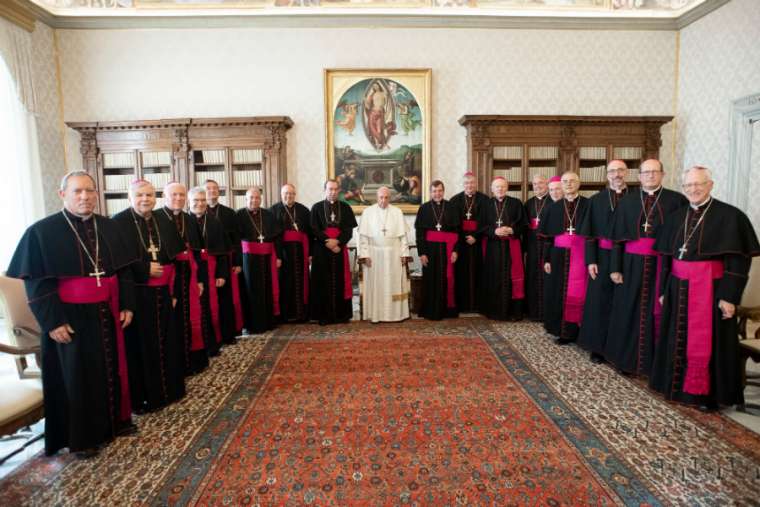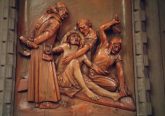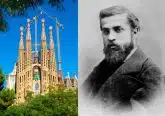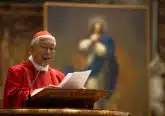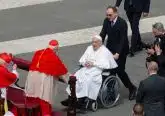US bishops in Rome ask Pope Francis about McCarrick report
By Courtney Mares
Vatican City, Dec 13, 2019 / 09:56 am (CNA).- American bishops from the Midwest met with Pope Francis this week with questions about the outcome of the Vatican’s investigation of Theodore McCarrick.
“I did ask about the McCarrick situation. That was something that all of us were very interested in knowing where this was going. And very glad to hear that a report is coming, and not sure when it will be, probably after the beginning of the new year,” Bishop Earl Boyea of Lansing told EWTN Dec. 13.
The seventeen bishops from Ohio and Michigan (Region VI of the US bishops) met with the pope for two hours Dec. 10 as a part of their ad limina visit to Rome, and had the opportunity to ask the pope questions.
Bishop Boyea said he asked Pope Francis about the promised McCarrick report, and that the pope described it for them. He said that the bishops also discussed the report with the Vatican Secretary of State Cardinal Pietro Parolin.
Parolin is “a little more nervous about the reception of this in the public,” Boyea added.
The Vatican announced that it would conduct a review of files on McCarrick in October 2018.
At the U.S. bishops’ conference fall meeting in Baltimore Nov. 11-13, Boyea asked that an update on the Vatican’s McCarrick investigation be added to the agenda. Cardinal Sean O’Malley responded that the Holy See intended to publish the results of the investigation in the new year, “if not before Christmas.”
O’Malley said that the bishops of New England also discussed the McCarrick report during their ad limina meeting with Francis in early November before the U.S bishops meeting.
The cardinal said he was shown a “hefty document” by the Vatican, which is being translated into Italian for a presentation to Pope Francis, with an intended publication by early 2020.
Reports of McCarrick’s history of sexual abuse were initially made public in June 2018, when the Archdiocese of New York announced that a sexual abuse allegation against then-retired Cardinal McCarrick was “credible and substantiated.”
Subsequent reports of sexual abuse or harassment of children and seminarians by McCarrick surfaced, and Pope Francis accepted his resignation from the College of Cardinals and assigned him to a life of prayer and penance in July 2018.
In August 2018, former apostolic nuncio to the U.S. Carlo Maria Vigano claimed that Pope Francis had known about existing sanctions on McCarrick but chose to repeal them.
At their November 2018 meeting, just months after settlements of the Archdioceses of New York and Newark of abuse cases involving McCarrick were made public, the bishops were set to vote on a number of measures to deal with the clergy sex abuse crisis including a call for the Vatican to release all documents about McCarrick in accord with canon and civil law.
However, after the Vatican requested shortly before the meeting that the bishops not take action on the abuse crisis until an international summit of bishops in Rome in early 2019, the bishops did not end up voting on the McCarrick measure because of fears they could be viewed at odds with Rome.
Pope Francis dismissed McCarrick from the clerical state in February 2019, shortly before convening a summit of bishops from around the world on clergy sexual abuse. The Vatican’s accelerated investigation into McCarrick’s case was an “administrative penal process,” not a full juridical process, but one used when the evidence in the case is overwhelming.
Bishops Boyea said that he expects that the anticipated McCarrick report will “be like peeling a scab off” for the Church in the U.S. “It is going to be tough, we know that, but it is better to get that out and get that done with,” he said.
“This is ultimately for the good of the Church. The truth cannot hurt the Church,” Boyea told EWTN.
